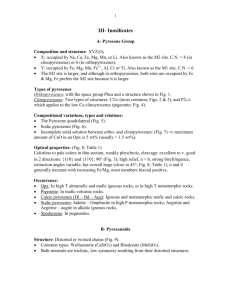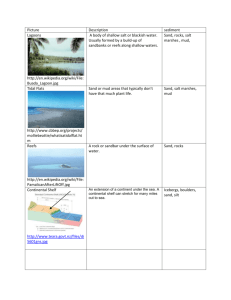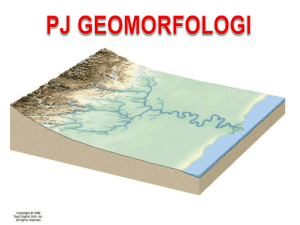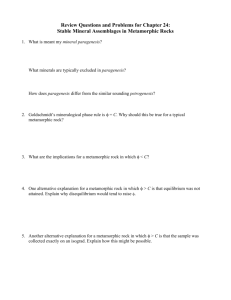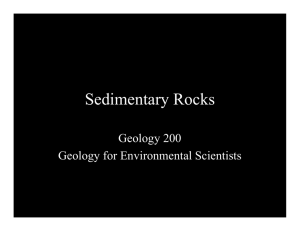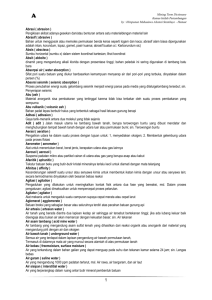Sari Lokasi penelitian terletak di Kecamatan Kolaka, Kabupaten
advertisement
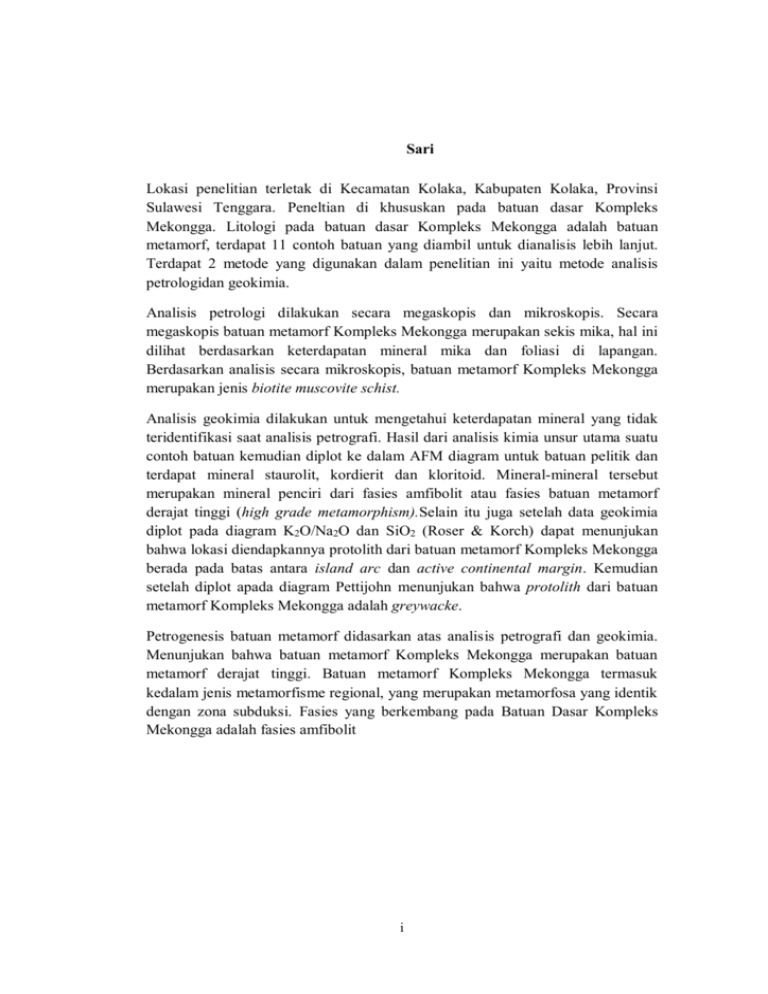
Sari Lokasi penelitian terletak di Kecamatan Kolaka, Kabupaten Kolaka, Provinsi Sulawesi Tenggara. Peneltian di khususkan pada batuan dasar Kompleks Mekongga. Litologi pada batuan dasar Kompleks Mekongga adalah batuan metamorf, terdapat 11 contoh batuan yang diambil untuk dianalisis lebih lanjut. Terdapat 2 metode yang digunakan dalam penelitian ini yaitu metode analisis petrologidan geokimia. Analisis petrologi dilakukan secara megaskopis dan mikroskopis. Secara megaskopis batuan metamorf Kompleks Mekongga merupakan sekis mika, hal ini dilihat berdasarkan keterdapatan mineral mika dan foliasi di lapangan. Berdasarkan analisis secara mikroskopis, batuan metamorf Kompleks Mekongga merupakan jenis biotite muscovite schist. Analisis geokimia dilakukan untuk mengetahui keterdapatan mineral yang tidak teridentifikasi saat analisis petrografi. Hasil dari analisis kimia unsur utama suatu contoh batuan kemudian diplot ke dalam AFM diagram untuk batuan pelitik dan terdapat mineral staurolit, kordierit dan kloritoid. Mineral-mineral tersebut merupakan mineral penciri dari fasies amfibolit atau fasies batuan metamorf derajat tinggi (high grade metamorphism).Selain itu juga setelah data geokimia diplot pada diagram K2O/Na2O dan SiO2 (Roser & Korch) dapat menunjukan bahwa lokasi diendapkannya protolith dari batuan metamorf Kompleks Mekongga berada pada batas antara island arc dan active continental margin. Kemudian setelah diplot apada diagram Pettijohn menunjukan bahwa protolith dari batuan metamorf Kompleks Mekongga adalah greywacke. Petrogenesis batuan metamorf didasarkan atas analisis petrografi dan geokimia. Menunjukan bahwa batuan metamorf Kompleks Mekongga merupakan batuan metamorf derajat tinggi. Batuan metamorf Kompleks Mekongga termasuk kedalam jenis metamorfisme regional, yang merupakan metamorfosa yang identik dengan zona subduksi. Fasies yang berkembang pada Batuan Dasar Kompleks Mekongga adalah fasies amfibolit i Abstract The Location of study in Kolaka district, Southeast Sulawesi. The Study was primarily concerned on a Mekongga basement rocks complex. Lithology of the Mekongga basement rocks complex is metamorphic rocks. There are 11 field observation samples and the 10 samples are taken for further analysis. There are 2 methods used in this study : petrological and geochemichal analysis. Petrological analysis are divided into two step : field observation and petrography analysis. Based on field observation the lithology of Mekongga basement rocks complex is mica schist. The name of lithology is based on the occurence of mica minerals and foliation in the field. Based on petrography analysis the lithology of Mekongga basement rocks complex is biotite schist muscovite. Geochemical analysis conducted to determine the unidentified minerals in petrography analysis. The results of chemichal analysis of the major elements, plotted in the AFM diagram for pelitic rocks. There are staurolite, cordierite and chloritoid were occur in the result of AFM diagram. These minerals is the marker of the early stage of amphibolite facies in the high grade metamorphism. After plotted on AFM diagram the result of chemistry analysis are plotted on K2O/Na2O and SiO2/Roser & Korch diagram to determine the settling location of the protolith of Mekongga basement rocks complex. The diagram show the settling location of the protolith of the Mekongga basement rocks complex at the island arc and the active continental margin. And resutl plotted on pettijohn diagram indicates that the protolith of the Mekongga basement rocks complex are graywacke. Petrogenesis of metamorphic rocks based on petrography and geochemical analysis. The results show the metamorphic rocks of the Mekongga basement rocks complex is high grade metamorphism and regional metamorphism. Regional metamorphis is the a type of metamorphism that identically with the subduction zones. . ii
